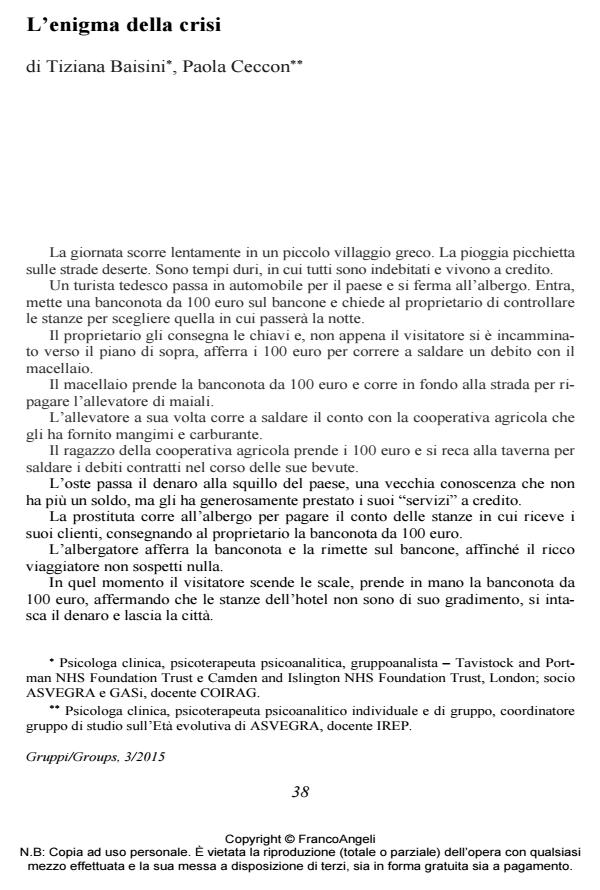The Enigma of the crisis
Journal title GRUPPI. Nella clinica, nelle istituzioni, nella società
Author/s Tiziana Baisini, Paola Ceccon
Publishing Year 2017 Issue 2015/3
Language Italian Pages 10 P. 38-47 File size 146 KB
DOI 10.3280/GRU2015-003004
DOI is like a bar code for intellectual property: to have more infomation
click here
Below, you can see the article first page
If you want to buy this article in PDF format, you can do it, following the instructions to buy download credits

FrancoAngeli is member of Publishers International Linking Association, Inc (PILA), a not-for-profit association which run the CrossRef service enabling links to and from online scholarly content.
The term "crisis" derives from the Greek "Krisis" which means "judgment, result of a trial, selection". In fact, the word encompasses underlying tones of contrasting themes of evolution and involution, growth and regression, desire and desperation. The concept of crisis therefore bears in its etymology an evolutionary possibility, which consists of a discernment between the constructive and destructive aspects of the crisis itself. In our opinion, there are similar characteristics in both the economic/social conflicts and those brought to us by our patients: dynamics of aggression, dependency and pathological narcissism. Starting from some clinical vignettes, we ask ourselves what is the role played by narcissistic dynamics in the crisis of the individual, the couple, the family and the society. Must there be decrease to have increase? Do we need to tolerate losses and limits in order to make room for a possible evolutionary movement? Does understanding the enigma of the crisis at one level give us a key for reading the other levels and vice-versa?
Keywords: Crisis of individual, family and society, narcissism, group dynamics, socio-economic conflicts.
Tiziana Baisini, Paola Ceccon, L’enigma della crisi in "GRUPPI. Nella clinica, nelle istituzioni, nella società" 3/2015, pp 38-47, DOI: 10.3280/GRU2015-003004